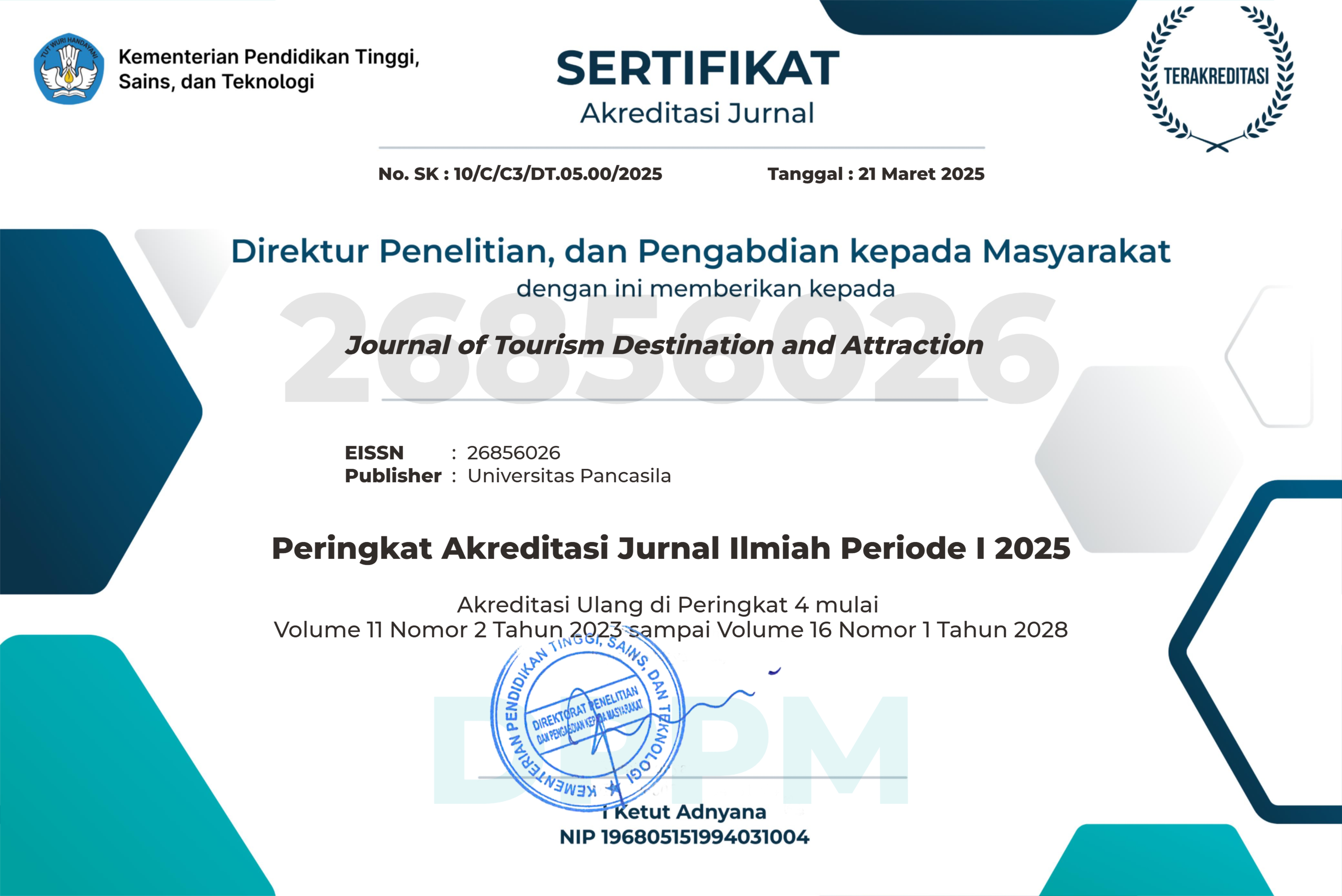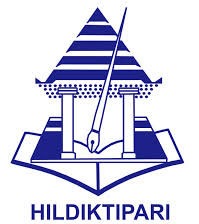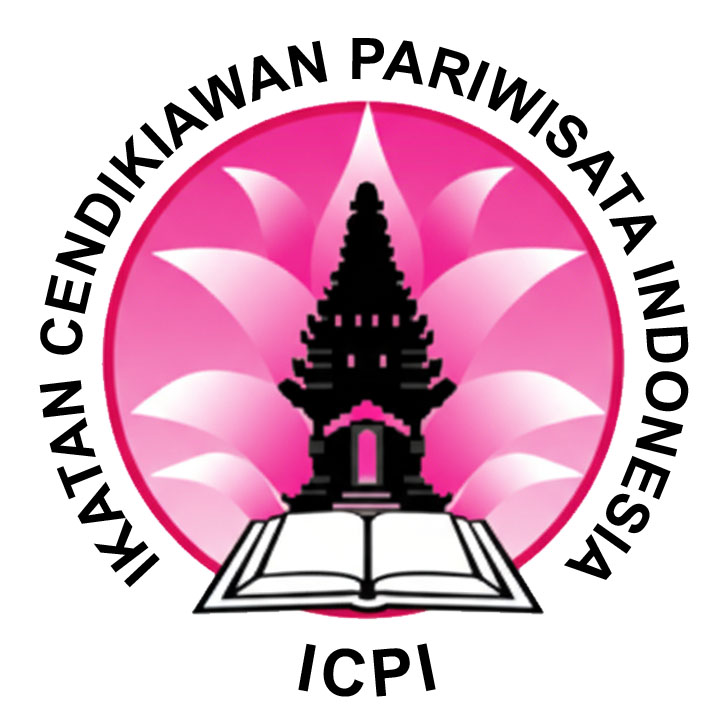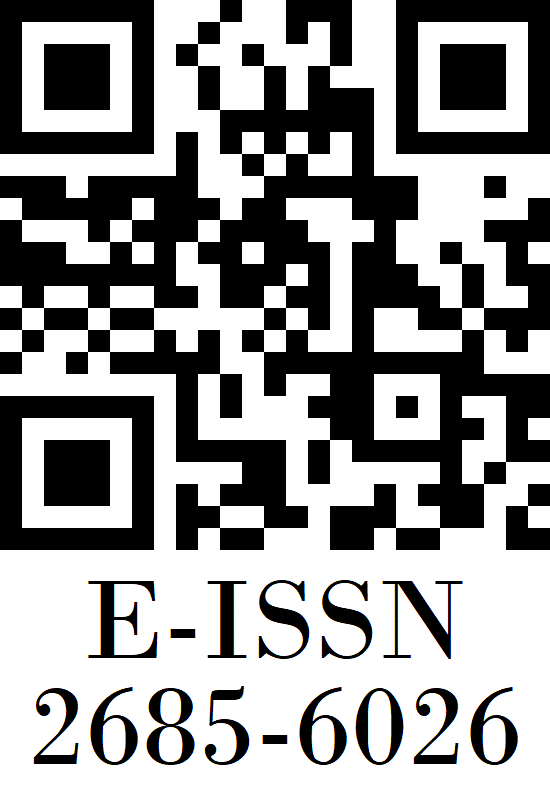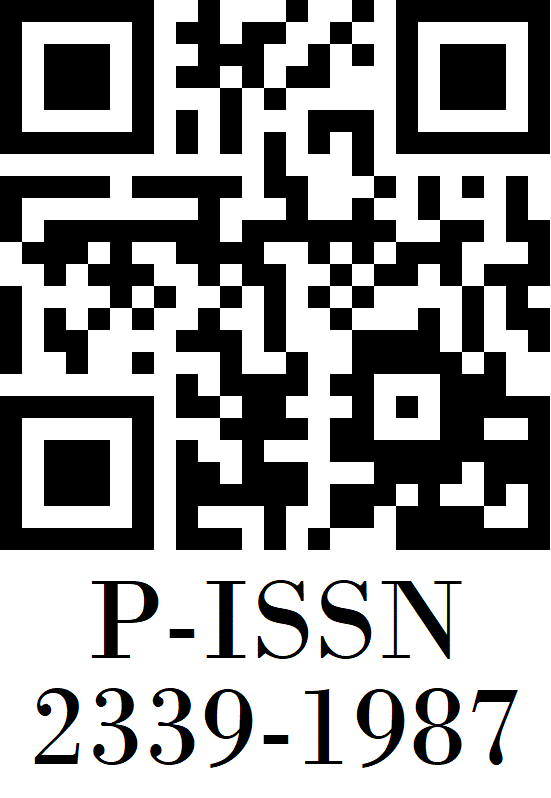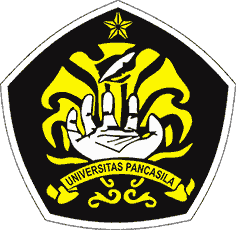Educational Tourism Development Strategy in Godong Ijo Depok with Experiential Marketing
Keywords:
educational tourism, experiential marketing, strategy developmentAbstract
Godong Ijo is a visitors’ attraction offering educational tourism programs with quite strong interaction with nature. The programs are designed as a means of learning, hence they are often participated by students. The purpose of this study is to describe the application of experiential marketing in Godong Ijo’s programs from visitors’ perspectives and to develop development strategy for Godong Ijo based on experiential marketing. The method used is qualitative research method using survey, interview and observation as the data collection techniques. Further, data collected were analysed using SWOT analysis. The result of this research reveals that Godong Ijo has tourism potential in terms of attraction, accessibility, amenity, and ancillary. In terms of experiential marketing, most respondents agree that all experiential marketing elements, i.e. think, sense, feel, act, and relate have been delivered to the visitors. Recommendations for development strategy include more extensive promotion, service improvement, product innovation and more product development.
References
Ankomah and Larson. 2000. Education Tourism: A Strategy to SustainableTourism Development in Sub-Saharan Africa.
Cooper, J.F. 1995. Tourism, Principles and Practice. London: Logman.
Jatmiko, R.D dan Andharini, S.N. 2012. Analisis Experiential Marketing Dan Loyalitas Pelanggan Jasa Wisata (Studi Pada Taman Rekreasi Sengkaling Malang). Jurnal Manajemen Dan Kewirausahaan, vol. 14, No. 2, 128-137.
Kartajaya H. 2004, Marketing in Venus. Jakarta: Gramedia Pustaka Utama.
Rahmawati HFI. 2013. Pengembangan pengembangan program wisata Edukasi di wanna wisata Gunung Puntang. Skripsi. Bandung: Universitas Pendidikan Indonesia
Rodger, K. 1998. Planning Education System. Tecnomic publishing Company inc florida.
Tsaur and Chiu, Wang. 2006. The visitors Behavioral Consequences Of Experiential Marketing: An Empirical Study On Taipei Zoo. Journal Of Travel And Tourism Marketing, Vol. 21(1), 47-64. Yuniarti, T. 2016. Pengaruh Experiential Marketing Dan Kualitas Produk Terhadap Kepuasan Pelanggan Pada Rumah Makan Soto Ayam Lamongan Cak Har, Jurnal Ilmu Dan Riset Manajemen: Volume 5, Nomor 6, 1-15.




